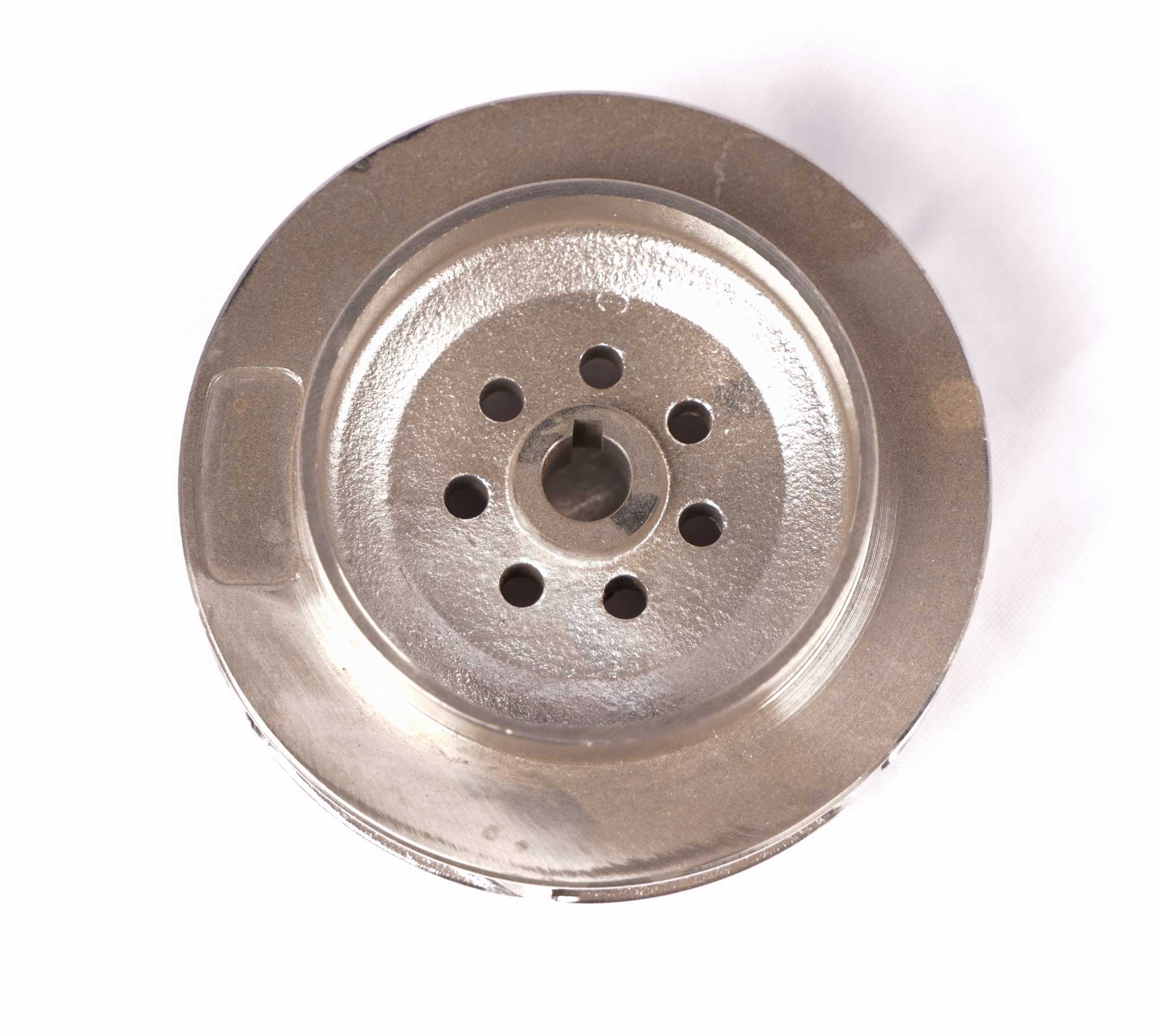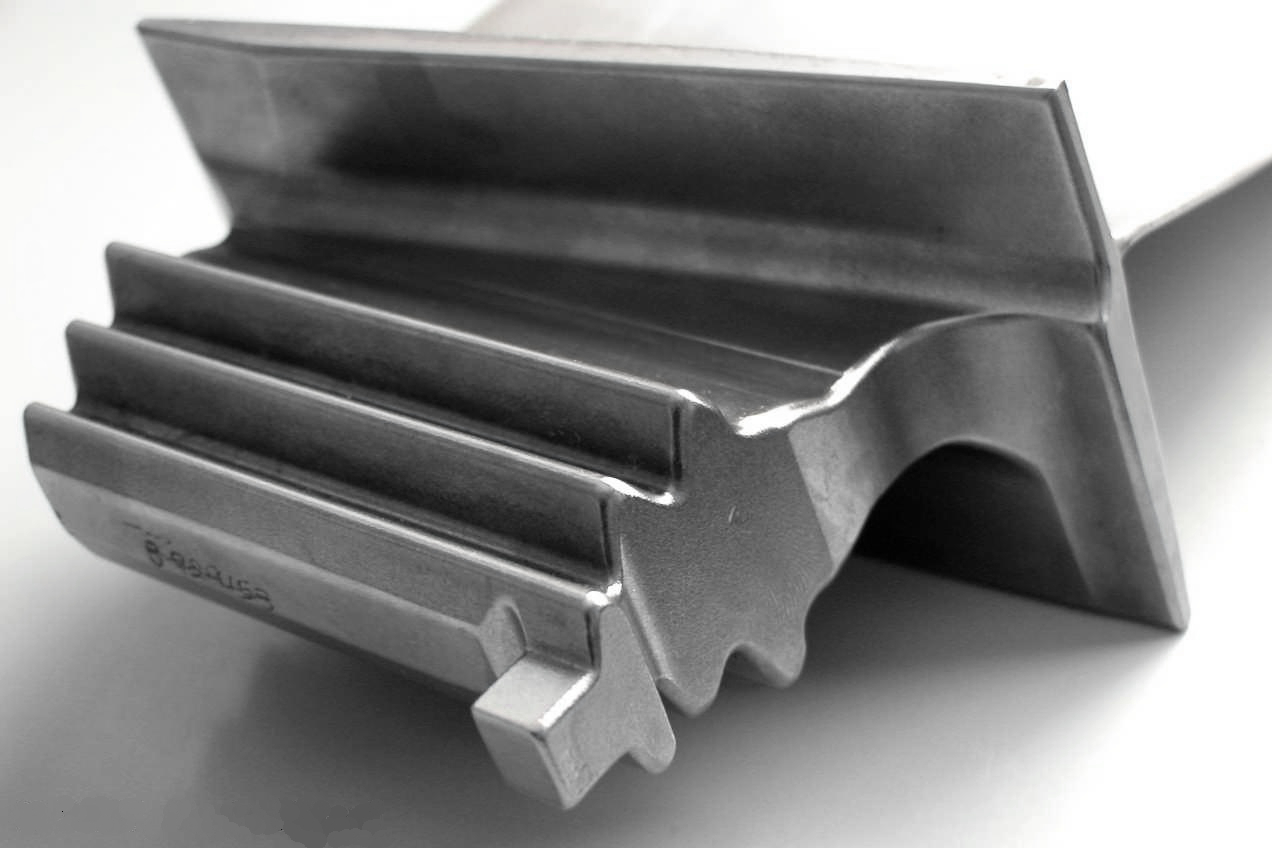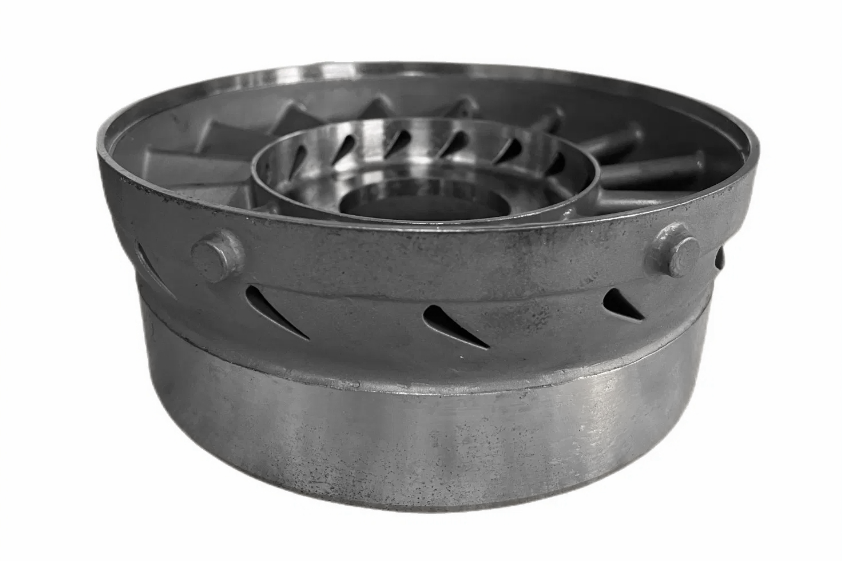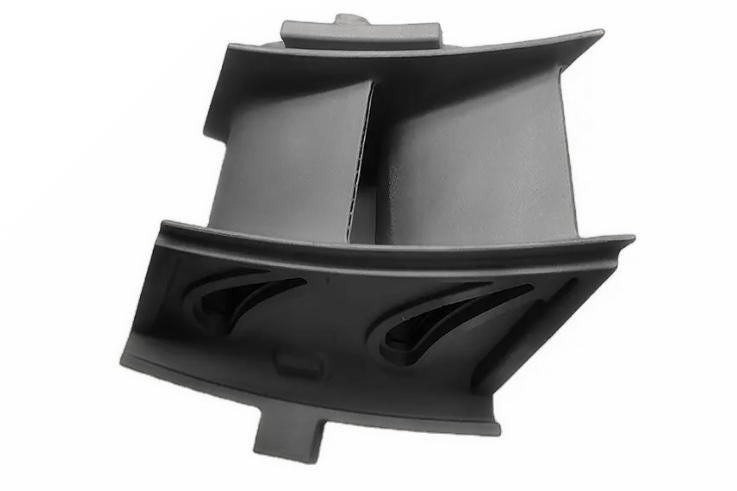Inconel 939
About Inconel 939 Superalloy
Inconel 939, also known as Alloy 939, belongs to the family of nickel-based superalloys, renowned for its high strength, fatigue resistance, and excellent thermal stability. Its German equivalent is DIN/EN 2.4635, and it is classified under the Chinese GB/T 14992 standard as GH939.
This alloy contains significant amounts of aluminum, titanium, and tungsten, which enhance its high-temperature stability. With exceptional durability under thermal stress, Inconel 939 is often employed in applications requiring prolonged exposure to extreme heat, such as aerospace components and gas turbines.
Inconel 939 Basic Introduction
Inconel 939 is designed to withstand extreme environments involving high heat and mechanical stress. This nickel-chromium-based superalloy offers excellent oxidation resistance and superior creep strength, making it ideal for applications requiring long-term stability at elevated temperatures up to 980°C.
With a carefully optimized chemical composition, Inconel 939 ensures reliability even in cyclic thermal conditions. It is commonly utilized in the aerospace and power generation industries for gas turbines, where fatigue resistance and prolonged service life are critical.

Alternative Superalloys of Inconel 939
Alternative materials to Inconel 939 include Inconel 718, Rene 77, and Haynes 230, all optimized for high-temperature environments. Inconel 718 offers a similar balance of mechanical properties but is better suited for cryogenic temperatures.
Rene 77 provides exceptional creep resistance but is typically more expensive. Haynes 230 stands out for its superior oxidation resistance, making it suitable for extreme heat applications beyond 1000°C. However, Inconel 939 is preferred when fatigue performance under thermal stress is prioritized.
Inconel 939 Design Intention
The primary goal behind Inconel 939’s design is to offer a superalloy that excels under extreme heat and mechanical stress. The alloy's formulation ensures superior thermal fatigue resistance, ideal for gas turbines and aerospace applications.
Designed to function in environments up to 980°C, Inconel 939 maintains mechanical integrity over long periods. The presence of titanium and aluminum enhances oxidation resistance, while tungsten improves creep strength, making this alloy reliable for continuous operation in high-temperature conditions.
Inconel 939 Chemical Composition
Inconel 939's unique composition provides outstanding high-temperature performance and fatigue resistance. Nickel and chromium form the primary matrix, providing oxidation resistance. Aluminum and titanium contribute to the alloy’s ability to withstand thermal fatigue, while tungsten enhances creep resistance for prolonged applications.
Element | Content (%) |
|---|---|
Nickel (Ni) | 50.0-53.0 |
Chromium (Cr) | 21.0-23.0 |
Aluminum (Al) | 1.4-2.0 |
Titanium (Ti) | 3.2-3.7 |
Tungsten (W) | 1.0-2.0 |
Inconel 939 Physical Properties
The physical properties of Inconel 939 ensure high thermal stability and fatigue resistance in extreme environments.
Property | Value |
|---|---|
Density (g/cm³) | 8.18 |
Melting Point (°C) | 1300 |
Thermal Conductivity (W/(m·K)) | 10.3 |
Modulus of Elasticity (GPa) | 225 |
Metallographic Structure of Inconel 939 Superalloy
Inconel 939 has a gamma-prime (γ’) phase microstructure, significantly enhancing its mechanical strength and resistance to creep deformation. The gamma-prime precipitates remain stable even under high temperatures, reducing dislocation movement and preventing microstructural degradation.
This alloy also contains carbides along the grain boundaries, which provide additional creep resistance. The stable microstructure ensures that Inconel 939 retains its properties even after prolonged exposure to thermal stress, making it suitable for cyclic applications such as turbine blades.
Inconel 939 Mechanical Properties
Inconel 939's mechanical properties ensure superior performance in high-temperature applications.
Property | Value |
|---|---|
Tensile Strength (MPa) | 1100-1200 |
Yield Strength (MPa) | 850 |
Hardness (HRC) | 40-45 |
Elongation (%) | 10% |
Elastic Modulus (GPa) | ~210 |
Creep Rupture Life | 25,000 hours at 980°C |
Key Features of Inconel 939 Superalloy
High-Temperature Stability Inconel 939 is designed to operate effectively at temperatures up to 980°C, making it suitable for extreme environments such as gas turbines and aerospace engines.
Superior Creep Resistance The alloy’s high tungsten content enhances its resistance to creep deformation, ensuring durability in long-term high-temperature applications.
Outstanding Fatigue Resistance Inconel 939 performs well under cyclic thermal conditions, reducing the risk of material fatigue and ensuring reliability in dynamic applications.
Oxidation and Corrosion Resistance With its high nickel and chromium content, Inconel 939 resists oxidation and corrosion, making it suitable for harsh chemical environments.
Long Service Life Inconel 939 provides exceptional longevity, with a creep rupture life of 25,000 hours at 980°C, minimizing maintenance and replacement costs in critical systems.
Inconel 939 Superalloy’s Machinability
Vacuum Investment Casting Inconel 939 is not ideal for Vacuum Investment Casting due to its high concentration of alloying elements, which can introduce challenges such as porosity. Although it exhibits excellent high-temperature properties, achieving the necessary casting precision and avoiding defects in intricate designs is challenging.
Single Crystal Casting Inconel 939 is not typically used in Single Crystal Casting because its composition favors equiaxed grain structures. The alloy lacks the segregation control and microstructural stability required for single-crystal applications, where directional solidification is critical.
Equiaxed Crystal Casting Inconel 939 performs exceptionally well in Equiaxed Crystal Casting. Its chemical stability ensures reliable properties, high-temperature resistance, and fatigue performance, making it a preferred material for turbine vanes and blades.
Directional Casting Although uncommon, Inconel 939 can be used in Superalloy Directional Casting when specific properties, such as high creep strength at elevated temperatures, are required. However, the alloy's inherent structure makes it better suited for equiaxed casting.
Powder Metallurgy Turbine Disc Inconel 939 is not recommended for Powder Metallurgy Turbine Disc applications, as its composition and properties are better exploited in cast forms rather than powder processes that demand fine microstructural control.
Precision Forging The alloy's high-temperature properties make it a poor candidate for Superalloy Precision Forging. Inconel 939 is challenging to forge due to its resistance to deformation, making other alloys like Inconel 718 more suitable for these applications.
Superalloy 3D Printing Superalloy 3D Printing is not recommended for Inconel 939, as its complex alloying elements and high melting point limit its printability. The risk of cracking and porosity further complicates the additive manufacturing process.
CNC Machining Inconel 939 is suitable for CNC Machining due to its strength and stability, though machining requires specialized tools and techniques. Its high hardness can cause rapid tool wear, demanding careful process management.
Superalloy Welding Superalloy Welding is challenging with Inconel 939 due to its susceptibility to cracking. Preheating and post-weld heat treatments are often necessary to mitigate issues and ensure weld quality.
Hot Isostatic Pressing (HIP) Inconel 939 responds well to Hot Isostatic Pressing (HIP), which helps eliminate porosity and enhances mechanical properties. HIP can improve the alloy’s durability and fatigue performance in high-stress applications.
Inconel 939 Superalloy Applications
Aerospace and Aviation In Aerospace and Aviation, Inconel 939 is used for turbine vans and blades, where high-temperature strength and thermal fatigue resistance are essential for efficient engine operation.
Power Generation In Power Generation, the alloy’s ability to withstand extreme heat and stress makes it ideal for gas turbines and power plant components, extending service life in challenging environments.
Oil and Gas, Oil and Gas industries, benefit from Inconel 939's corrosion resistance and high-temperature stability, particularly in gas compressors and turbine components exposed to aggressive conditions.
Energy In the Energy sector, Inconel 939's high-temperature endurance makes it a reliable choice for steam turbines and components that must perform under thermal cycling.
Marine Marine environments leverage Inconel 939’s resistance to corrosion and fatigue, using it in high-performance engine parts and exhaust systems exposed to seawater.
Mining: Mining applications use Inconel 939 for drilling tools and high-stress components requiring mechanical strength and thermal resistance.
In the Automotive sector, Inconel 939 is employed for turbocharger rotors and high-performance exhaust valves due to its ability to maintain strength at elevated temperatures.
Chemical Processing Chemical Processing industries utilize Inconel 939 in reactors and heat exchangers, where corrosion resistance under high temperatures is critical.
Pharmaceutical and Food In the Pharmaceutical and Food industries, Inconel 939 ensures hygiene and durability in processing equipment that undergoes frequent thermal sterilization.
Military and Defense: Military and Defense sectors use Inconel 939 for jet engine components and missile parts, where high-temperature endurance and reliability are essential.
Nuclear In Nuclear applications, the alloy's resistance to radiation-induced degradation and high-temperature stability make it ideal for reactor components.
When to Choose Inconel 939 Superalloy
Inconel 939 is the material of choice when custom superalloy parts must operate in environments with extreme thermal stress. It offers exceptional fatigue resistance, especially in gas turbines and aerospace engines, where high creep strength and extended service life are critical.
Industries requiring reliability in extreme temperatures, such as power generation and chemical processing, also rely on custom superalloy parts like Inconel 939. Even after prolonged exposure to 980°C, its exceptional mechanical properties ensure minimal downtime and optimal performance.



